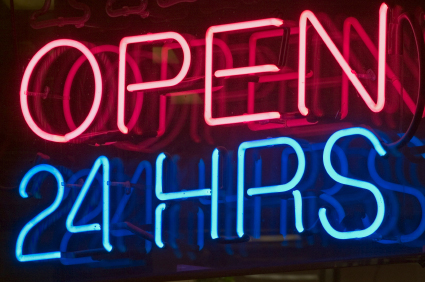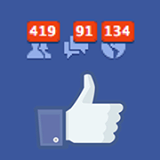SURVEY: Depressingly, Email remains the most important technology at work
One of my go-to places for news, data, and research on technology adoption, usage, and trends is the Pew Research Internet Project. Towards the end of 2014, the folks at Pew released a short research report titled Technology's Impact on Workers, a look at how and which kinds of technologies are effecting work and workforces. It is a pretty interesting and easily digestible report, but since I know you are really busy and might not have time to read the entire research report, I wanted to call out one data point, and then we can, together, pause, reflect, and lament for a moment.
First the data point, take a look at the chart below that displays survey responses to the question of which technologies workers (separated into office workers and non-office workers), consider 'very important' to their jobs:

Two things stand out from this data. First, and the obvious one (and still exceedingly depressing), is that email remains the most important type of technology cited by office workers for helping them perform their jobs. Despite its relative maturity (and that is putting it nicely, as far as technology goes, email at about 30 years old should have been brought out behind the barn and put out of its misery decades ago), email continues to hold its vise-like death grip on modern office work. I hope I live (or at least work) long enough to see email finally disrupted from this position, but so far alternate workplace communication and collaboration options have not been able to accomplish what (ironically), almost everyone desires - the end of being slaves to email all day.
The other bit of data from the Pew survey comes from the bottom portion of the chart - the kinds of technologies that workers find not 'very important' to them in getting their jobs done. And in a result that will make the social networking aficionados cringe (and many CIOs who would prefer to block these kinds of things from corporate networks happy), social networking sites like LinkedIn, Twitter, and Facebook were cited as 'very important' by a measly 7 percent of office workers and 2 percent of non-office workers. Now that doesn't mean that these networks are 'not important', based on the way the question was phrased, but certainly the vast disparity in the stated importance of social networks in getting work done compared to email, (general) internet availability, and phones paints a pretty clear picture. For most folks, technology use at work is dominated by email, with web access and phones, (land and mobile), rounding out about 90% of the technology picture.
I will close with a quote from the Pew report, and then sulk away with my head bowed, dreaming of a better future for our children...
This high standing for email has not changed since Pew Research began studying technology in the workplace. Email’s vital role has withstood major changes in other communications channels such as social media, texting, and video chatting. Email has also survived potential threats like phishing, hacking and spam and dire warnings by commentators and workplace analysts about lost productivity and email overuse.
Ugh.
Happy Wednesday.

 Steve
Steve



